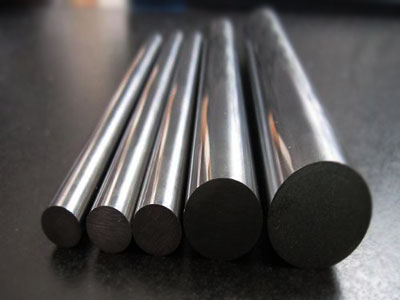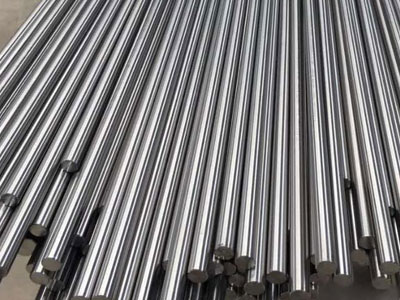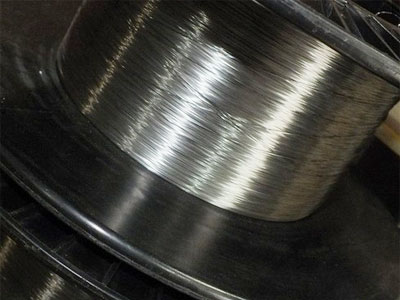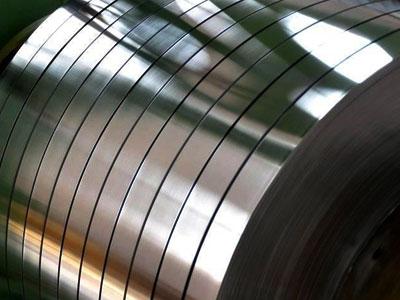What is an Alloy?
views, Updated: March 16, 2023 by aemmetal
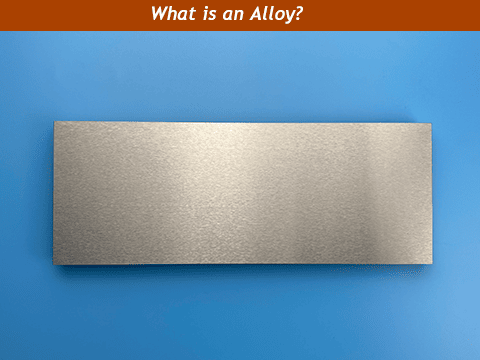
An alloy is a material made from two or more metals. The metal alloy is known for its excellent characteristics. The metal alloy is typically stronger and harder than pure metal, while also possessing good mechanical properties and corrosion resistance. The most common changes include an increase in strength and hardness. It is commonly used to manufacture chemical containers and related equipment parts.
You can make alloys by heating and cooling two or more metals. The resulting alloys have different properties than individual metals. Brass, for example, is made from copper and zinc. The addition of zinc will make the material more durable.
If you're interested in learning more about alloys or finding the perfect alloy for your needs, get in touch with us today! We'd be happy to help you find the perfect solution for your business.
Why Are Metal Alloys Useful?
When two or more pure metals are combined, it often leads to changes in the mechanical properties of the resulting metal. The most common changes include an increase in strength and hardness. For example, steel is an alloy of iron and carbon. The addition of carbon makes steel much harder than iron.
There are many different metal alloys, each with its own unique properties. Some common metal alloys include brass, bronze, and aluminum.
Examples of Popular Alloys and Their Uses:
Stainless Steel
Stainless steel is a type of metal made by mixing different metals like chromium, nickel, and others into steel. The special thing about stainless steel is that it doesn't rust easily. This is because of the chromium in the alloy. The chromium forms a strong layer of chromium oxide on the surface of the metal that helps protect it from rust.
Stainless steel features: clean health, anti-corrosion, fine surface treatment, high rigidity.
Stainless steel is used in different ways depending on the type. Austenitic stainless steel is often used for household items, industrial pipes, and building structures. Martensitic stainless steel is used for making cutting tools and turbine blades. Ferritic stainless steel is very good at resisting corrosion and is often used for making washing machines and boiler parts that need to last a long time.
Brass
Brass is an alloy of copper and zinc, and it has a yellowish color. Brass is often used for decorative purposes because of its appearance.
Copper has some special properties, like being resistant to corrosion, and having an excellent ability to conduct heat and electricity. It is also hard, flexible, and can be shaped in different ways. When polished, it has a unique look.
Copper is used in many different ways, such as for making wires, engine coils, printed circuits, roofing materials, piping materials, heating materials, jewelry, and cookware. It's also used to make bronze, which is a special kind of metal.
Aluminum
Aluminum is the most common metal in the world, and it is also one of the most popular alloys. It is lightweight and corrosion-resistant, making it ideal for use in the automotive industry. And it is known for its strength and low density.
Aluminum material characteristics: flexible, high strength and low density, excellent corrosion resistance, easy to conduct electricity and heat, recyclable.
Common uses of aluminum: vehicle frames, aircraft parts, kitchen tools, packaging and furniture. Reinforce large building structures.
Titanium
Titanium alloys can be divided into three groups according to their composition.
Titanium alloy has high strength and low density, good mechanical properties, toughness, and corrosion resistance.
Titanium material characteristics: Titanium has low density, high-temperature resistance, corrosion resistance, and other excellent characteristics. Titanium alloys are half as dense as steel and about as strong. Low conductivity, low thermal expansion rate, high melting point.
Typical use: Often used in aerospace, and military precision parts. Golf clubs, laptops, cameras, luggage, surgical implants, aircraft skeletons, chemical equipment, and maritime equipment.
What Are Some Common Refractory Metal Alloys?
Refractory metals are a group of metals that have very high melting points, usually above 2000℃. The most common refractory metals are molybdenum (Mo), niobium (Nb), tantalum (Ta), tungsten (W), and rhenium (Re).
Refractory metals don't resist oxidation well at medium and high temperatures. This limits their use in high-temperature environments where there's lots of air. The refractory metal alloys designed with reasonable alloy composition have high-temperature oxidation resistance.
Here is some common refractory metal alloy:
Molybdenum Alloy
Molybdenum alloy has high strength, moderate density, and low price in high-temperature applications. It is the largest refractory metal alloy used in industry.
Common molybdenum alloy grades include TZM, TZC, HCM, Mo-Re, etc. TZM alloys are the most widely used in rocket engines and nuclear power plants. The HCM alloy tensile strength can reach about 455Mpa at 1300°C, 40% higher than TZM. Mo-Re alloy has better low-temperature plasticity and thermal shock resistance.
Niobium Alloy
Niobium alloy has some special properties like low density, easy to shape, and excellent mechanical properties at both high and low temperatures.
The commonly used niobium alloys are Nb-W, Nb-Mo, Nb-Hf, and Nb-Ti.
Because it's a refractory metal, it can handle very high temperatures without getting damaged. This makes it useful in the aerospace field, where it's often used because of its strength and ability to be shaped even at temperatures above 1649.9℃.
Tantalum Alloy
Tantalum alloys are very strong at high temperatures, don't corrode easily, and are used a lot in electronics, weapons, and aerospace.
The most common kinds of tantalum alloys are Tantalum Tungsten Alloy (Ta-W) , Tantalum Niobium Alloy (Ta-Nb) , and Tantalum Hafnium Alloy (Ta-Hf).
Some examples of these are Ta-12W, Ta-10W, ASTAR-811C, T-111, and T-222. Tantalum alloys are better than molybdenum and niobium alloys when it comes to their strength at high temperatures.
Tungsten Alloy
Tungsten is a refractory metal with the highest melting point and high temperature strength. It is mainly used in rocket propeller nozzles, armor-piercing bullets, super-hard drill bits, molds, etc., and is also commonly used as an additive element in refractory metal alloys.
The main disadvantages of tungsten are its high density (19.35 g/cm3) which limits its use in aerospace.
The most common kinds of tungsten alloys are Tungsten Rhenium Alloy(W-Re), Tungsten Silver Alloy(W-Ag), and Tungsten Copper Alloy(W-Cu).
Rhenium Alloy
Rhenium alloy has excellent properties for use in extreme temperature and thermal shock environments. It has high tensile and creep strength at both high and low temperatures, as well as good resistance to gas corrosion.
Rhenium is mainly used in the production of engines, aerospace components, and high-temperature parts for supersonic aircraft. It is also used as an antioxidant chemical coating and in solid propulsion thermal components.
Common rhenium alloys include Rhenium Platinum Alloy (Re-Pt), Rhenium Tungsten Alloy (Re-W), and Rhenium Silver Alloy (Re-Ag). Want to learn more about refractory metal alloy? Or if you need help finding the perfect alloy for your needs, contact us today!
Work with Us If You Need Custom Refractory Metal Alloys
It's important to work with experts who know about the refractory metals alloys. At AEM Metal, we have a team of experienced professionals who are passionate about alloys and their applications.
We offer a wide range of alloys, as well as custom alloys that are designed to meet the specific needs of our customers. If you're looking for help finding the perfect alloy for your needs, we encourage you to get in touch with us today. We'll be happy to answer any questions you may have and help you find the perfect solution for your needs.


